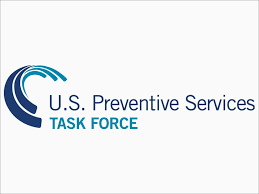
01 Sep USPSTF: PrEP Helps Prevent HIV but Not Other STDs. Safe Sex Still Important
MedicalResearch.com Interview with:

Dr. Stevermer
James Stevermer, M.D., M.S.P.H.Vice chair for clinical affairs
Professor of family and community medicine
University of Missouri
Medical director of MU Health Care Family Medicine–Callaway Physicians,
Dr. Stevermer joined the U.S. Preventive Service Task Force in January 2021.
MedicalResearch.com: What is the background for this study?
Response: HIV continues to be a significant public health issue. The good news is that PrEP is a safe, highly effective way to help prevent HIV in people at increased risk. There are now two ways people can take PrEP – as a pill or as a shot. We encourage healthcare professionals to have a conversation with their patients about their individual risk for HIV and determine if they should consider taking whichever form of PrEP would work best for them.
MedicalResearch.com: Might the availability of HIV treatment have encouraged some to forego HIV preventative treatment and safer sex practices?
Response: While treatment of HIV has evolved significantly in recent years, it remains a serious condition and it is still important that people do what they can to avoid getting HIV. Unfortunately, many people who would benefit from PrEP are not receiving this highly effective medication.
We need more research to better understand why some people at increased risk for HIV are not receiving PrEP or why they don’t take it as prescribed. This is especially important among Black, Hispanic, and Latino communities, who are more likely to be diagnosed with HIV, yet have much lower rates of PrEP use than White people. It’s important that healthcare professionals are aware of the barriers to PrEP use and offer support to patients at increased risk to help them stay healthy.
PrEP is most effective when taken as prescribed, so the Task Force is also calling for more research on how to best support people in taking PrEP. The addition of a PrEP shot is one important step in this direction.
MedicalResearch.com: What recommendations do you have for future research as a results of this study?
Response: While there is strong evidence supporting PrEP use among people at increased risk to prevent them from getting HIV, we need to know more about how to help people get the full benefit of PrEP. Importantly, we also need better tools to help healthcare professionals identify people at increased risk for HIV. In the meantime, clinicians should have an open and supportive conversation with their patients about their sexual history and ask about injection drug activities to determine who is at risk for HIV.
MedicalResearch.com: Is there anything else you would like to add? Any disclosures?
Response: It is important readers understand that PrEP helps prevent HIV, but not other STIs. People who take PrEP should continue to use condoms, practice other safer sex and safer injection drug use behaviors, and receive ongoing care, including regular testing for HIV and other STIs.
Citation:
1) Chou R, Spencer H, Bougatsos C, Blazina I, Ahmed A, Selph S. Preexposure Prophylaxis for the Prevention of HIV: Updated Evidence Report and Systematic Review for the US Preventive Services Task Force. JAMA. 2023;330(8):746–763. doi:10.1001/jama.2023.9865
https://jamanetwork.com/journals/jama/fullarticle/2808515
2) JAMA Patient Page
US Preventive Services Task Force. Preventing HIV With PrEP. JAMA. 2023;330(8):777–778. doi:10.1001/jama.2023.15320
https://jamanetwork.com/journals/jama/fullarticle/2808520
The information on MedicalResearch.com is provided for educational purposes only, and is in no way intended to diagnose, cure, or treat any medical or other condition.
Some links may be sponsored. Products are not endorsed.
Always seek the advice of your physician or other qualified health and ask your doctor any questions you may have regarding a medical condition. In addition to all other limitations and disclaimers in this agreement, service provider and its third party providers disclaim any liability or loss in connection with the content provided on this website.
